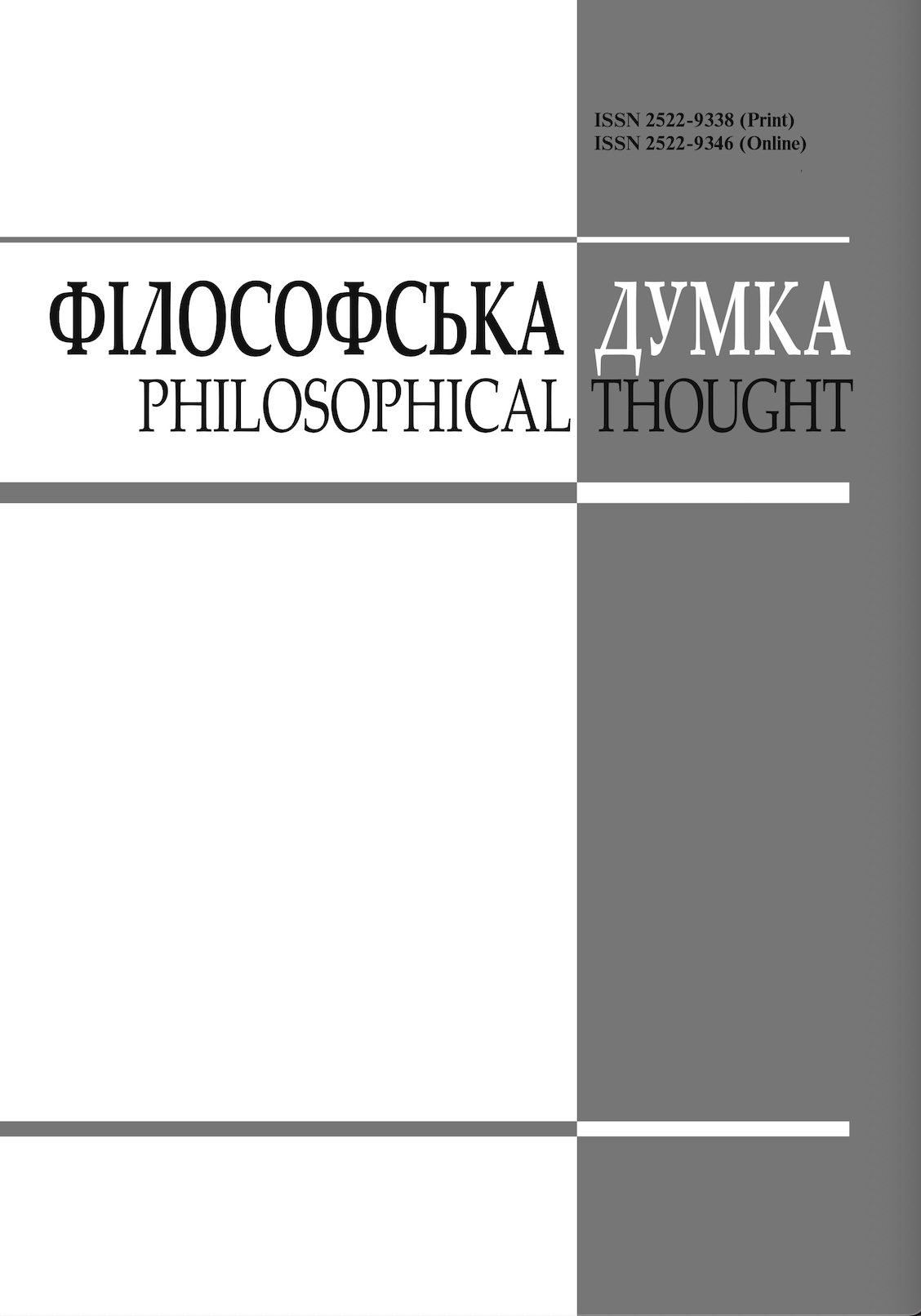THE PHENOMENON OF RESENTMENT IN CULTURE: NIETZSCHE, SCHELER, FUKUYAMA
YOUNG SCIENTIST'S PAGE
DOI:
https://doi.org/10.15407/fd2024.03.184Keywords:
ressentiment, morality, cultural dynamics, political processes, nihilism, identity, phenomenology, humanism, freedom, F. Nietzsche, M. Scheler, F. FukuyamaAbstract
The article delves into the concept of ressentiment within the context of phenomenology and its profound impact on the formation of moral values and socio-cultural dynamics. Drawing on the ideas of Max Scheler, which are partially rooted in Friedrich Nietzsche's philosophy and extended through Francis Fukuyama’s works, the paper explores how ressentiment serves as a critical factor in transforming various spheres of human social activity. The article identifies ressentiment as a driving force behind the crisis of humanistic ideals and examineі its pervasive effect on contemporary values. It emphasizes the importance of understanding this phenomenon in shaping socio-cultural dynamics, particularly in relation to moral-legal perceptions and the collective shifts in society’s values. By examining the internal conflict experienced by individuals influenced by ressentiment, the article sheds light on its role in moral conflicts and social tensions. Furthermore, the work underscores the relevance of Scheler’s phenomenology and Fukuyama’s exploration of identity politics in addressing the challenges posed by ressentiment. It highlights the need to grasp ressentiment not merely as a sociological phenomenon but as a complex psychological experience with deep social implications. The study also opens avenues for future research into how ressentiment influences modern political ideologies and cultural narratives, impacting both individual identities and collective consciousness. Additionally, the article discusses the implications of ressentiment in the digital age, where social media amplifies these sentiments, further polarizing societies and intensifying identity-based conflicts. By providing a focused and nuanced analysis of ressentiment, the article emphasizes its significance in the evolution and transformation of cultural and moral values in the modern world, making it a crucial topic for ongoing philosophical inquiry. This exploration is essential for understanding the roots of contemporary societal divisions and offers insights into potential pathways for addressing these deep-seated issues.
References
Nietzsche, F. (2002). Beyond Good and Evil. On the Genealogy of Morality. [In Ukrainian]. Lviv: Litopys.
Nietzsche, F. (2018). The Dawn of Day. Thoughts on Moral Prejudices. [In Ukrainian]. Kyiv: Tempora.
Fukuyama, F. (2020). Identity: The Demand for Dignity and the Politics of Ressentiment. [In Ukrainian]. Kyiv: Nash Format.
Scheler, M. (s.a.). Ressentiment in the Structure of Morals / Trans. from German by Vakhtang Kebuladze (manuscript). [In Uraininan].
Downloads
-
PDF (Українська)
Downloads: 222
Published
How to Cite
Issue
Section
License
Authors who publish with this journal agree to the following terms:
- Authors retain copyright and grant the journal right of first publication.
- Authors are able to enter into separate, additional contractual arrangements for the non-exclusive distribution of the journal's published version of the work (e.g., post it to an institutional repository or publish it in a book), with an acknowledgement of its initial publication in this journal.
- Authors are permitted and encouraged to post their work online (e.g., in institutional repositories or on their website) prior to and during the submission process, as it can lead to productive exchanges, as well as earlier and greater citation of published work (See The Effect of Open Access).


